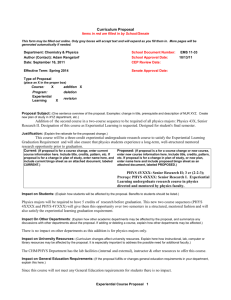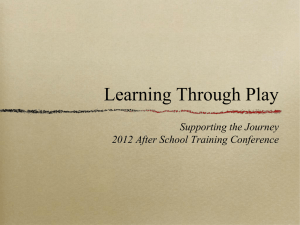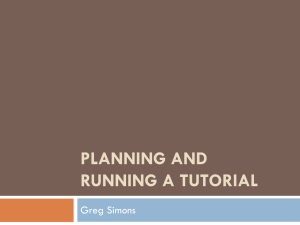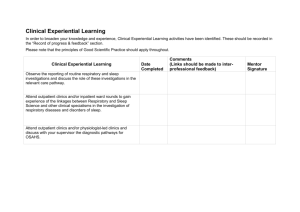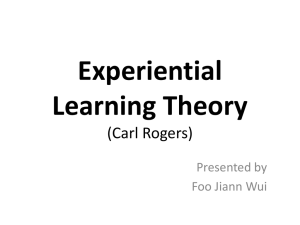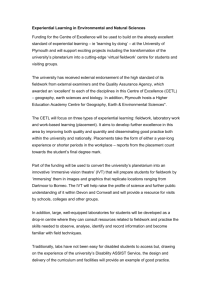Survey_Report
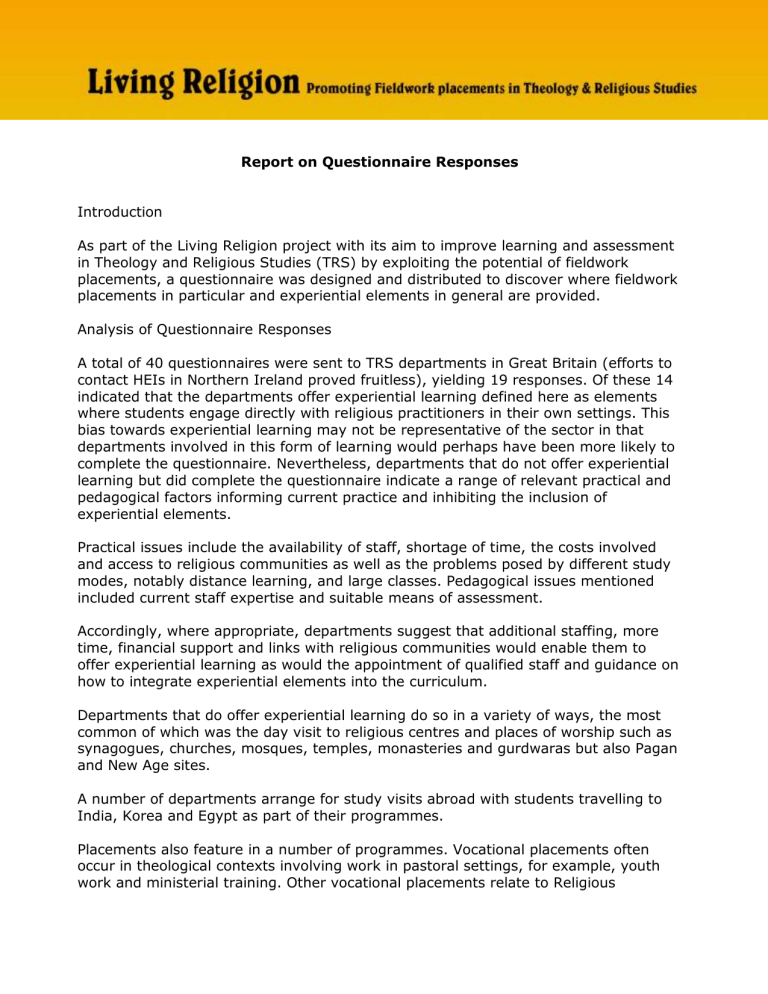
Report on Questionnaire Responses
Introduction
As part of the Living Religion project with its aim to improve learning and assessment in Theology and Religious Studies (TRS) by exploiting the potential of fieldwork placements, a questionnaire was designed and distributed to discover where fieldwork placements in particular and experiential elements in general are provided.
Analysis of Questionnaire Responses
A total of 40 questionnaires were sent to TRS departments in Great Britain (efforts to contact HEIs in Northern Ireland proved fruitless), yielding 19 responses. Of these 14 indicated that the departments offer experiential learning defined here as elements where students engage directly with religious practitioners in their own settings. This bias towards experiential learning may not be representative of the sector in that departments involved in this form of learning would perhaps have been more likely to complete the questionnaire. Nevertheless, departments that do not offer experiential learning but did complete the questionnaire indicate a range of relevant practical and pedagogical factors informing current practice and inhibiting the inclusion of experiential elements.
Practical issues include the availability of staff, shortage of time, the costs involved and access to religious communities as well as the problems posed by different study modes, notably distance learning, and large classes. Pedagogical issues mentioned included current staff expertise and suitable means of assessment.
Accordingly, where appropriate, departments suggest that additional staffing, more time, financial support and links with religious communities would enable them to offer experiential learning as would the appointment of qualified staff and guidance on how to integrate experiential elements into the curriculum.
Departments that do offer experiential learning do so in a variety of ways, the most common of which was the day visit to religious centres and places of worship such as synagogues, churches, mosques, temples, monasteries and gurdwaras but also Pagan and New Age sites.
A number of departments arrange for study visits abroad with students travelling to
India, Korea and Egypt as part of their programmes.
Placements also feature in a number of programmes. Vocational placements often occur in theological contexts involving work in pastoral settings, for example, youth work and ministerial training. Other vocational placements relate to Religious
Education and schools. Fieldwork placements can be associated with research projects and dissertations and may involve concentrated study on/in a specific community or sustained study of/in a specific locality.
It is noteworthy that none of the departments that do offer experiential learning had a specific policy on this aspect of their provision.
Conclusion
The project is intended to address some of the issues raised by departments that do not offer experiential learning either directly, by disseminating information and guidance to make it easier to offer experiential learning, or indirectly, by assisting departments to make the case for experiential learning as a priority that merits institutional investment.
However, this project is focused upon fieldwork placements. For analytic purposes, these can be divided into two main types. Typically, in a religious studies context with its emphasis on openness and empathy, this involves study of one or more traditions in a non-confessional context. Such placements are often ethnographic in character and can require a student to study a tradition with which they are not personally familiar and to which s/he does not belong. In a theological context, there is, though, a stress on personal spiritual development and reflection, not excluding a professional aspect. These placements may encompass a whole range of techniques and approaches but generally place students within their own faith traditions. Clearly, this division breaks down in practice as a religious studies style placement may well prompt personal spiritual development and reflection whereas a theology style placement may also involve the use of ethnographic tools.
Building from our own experience at Bath Spa University where second year students undertake a compulsory fieldwork placement, usually residential, and drawing upon the varied expertise of collaborating and partner HEIs, principally University of Wales,
Newport, and York St John University, the project recognises the value and importance of experiential learning overall and seeks to promote this across the sector.

